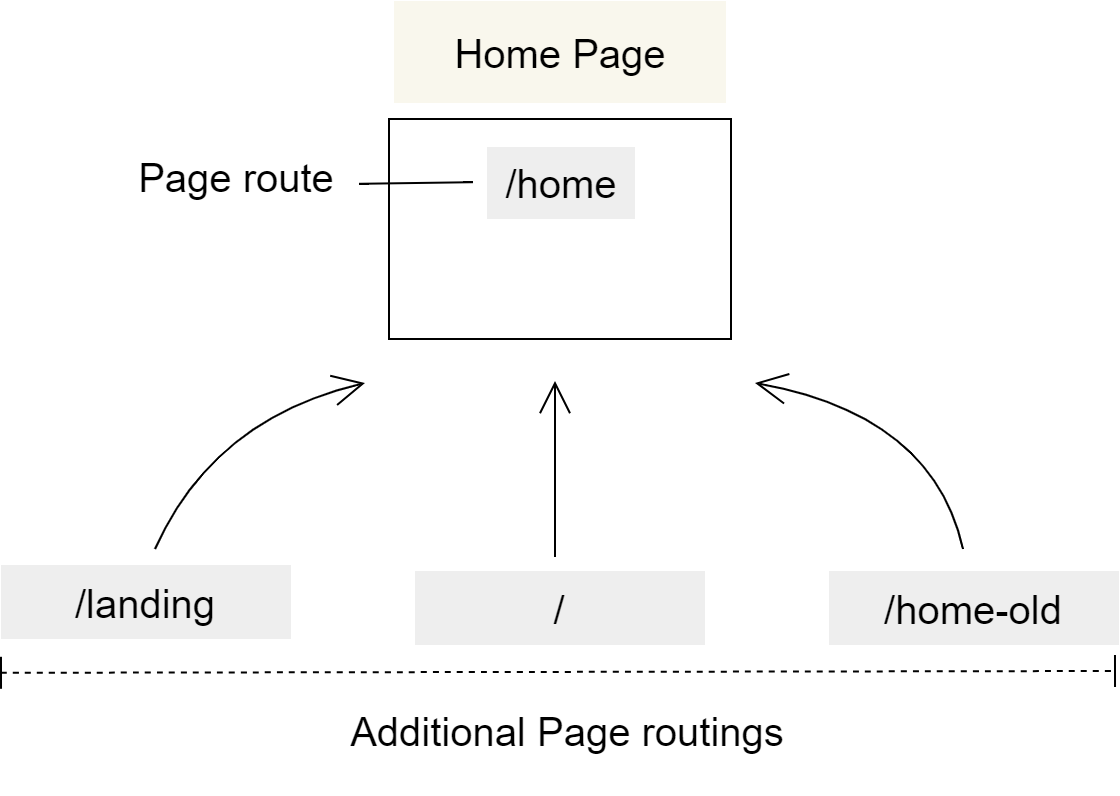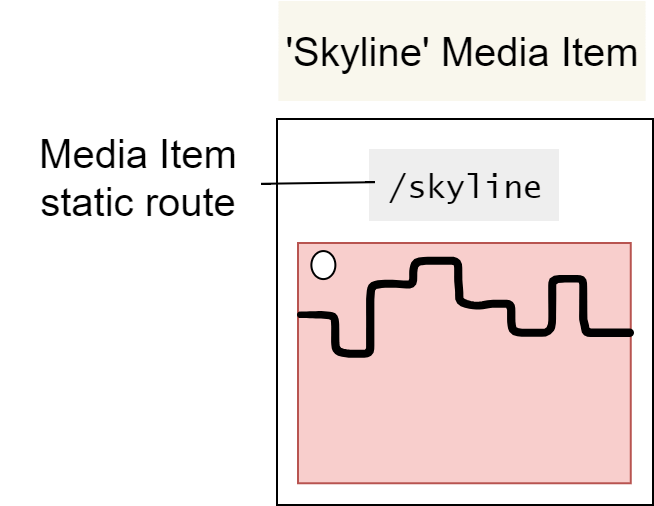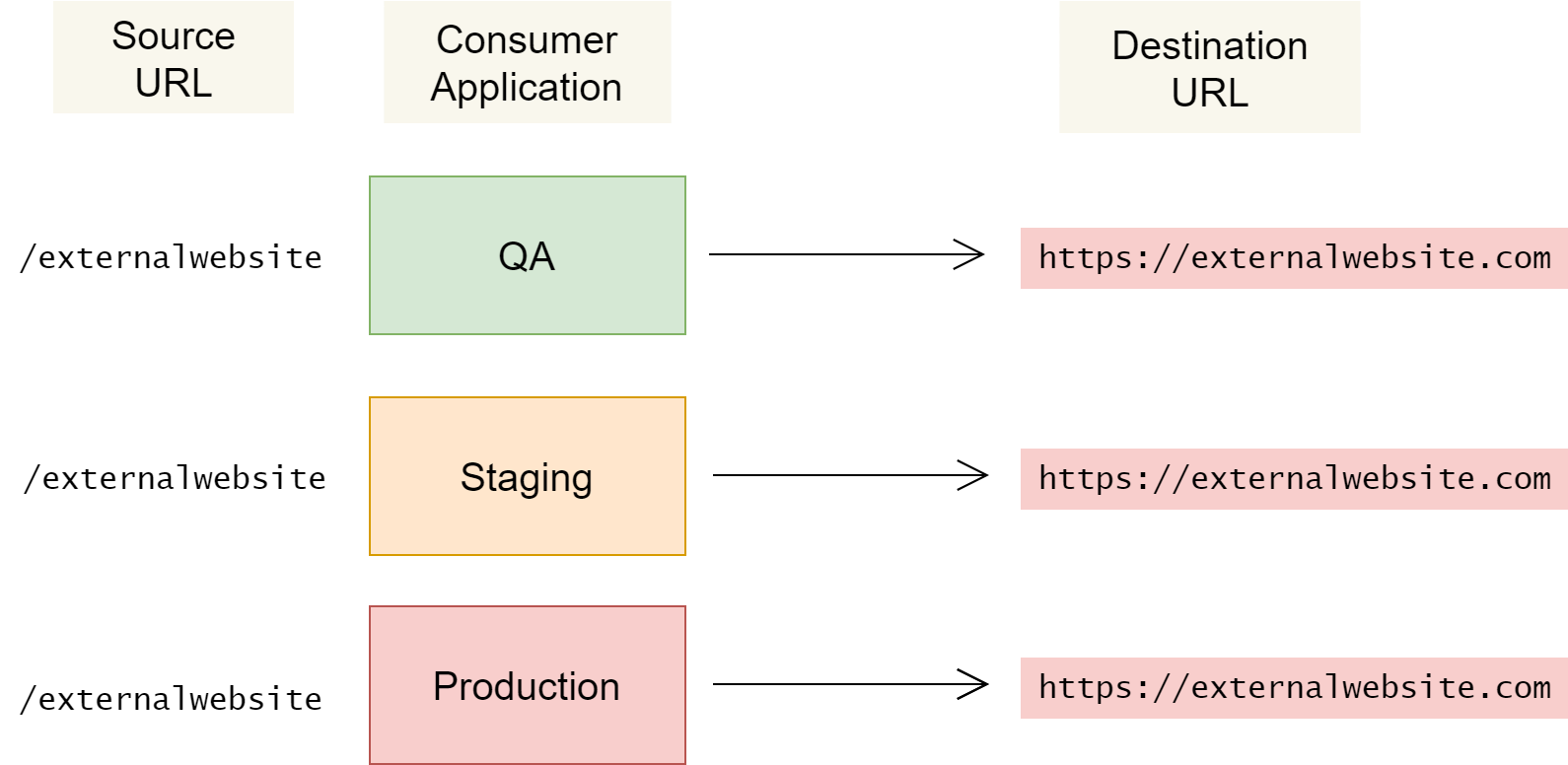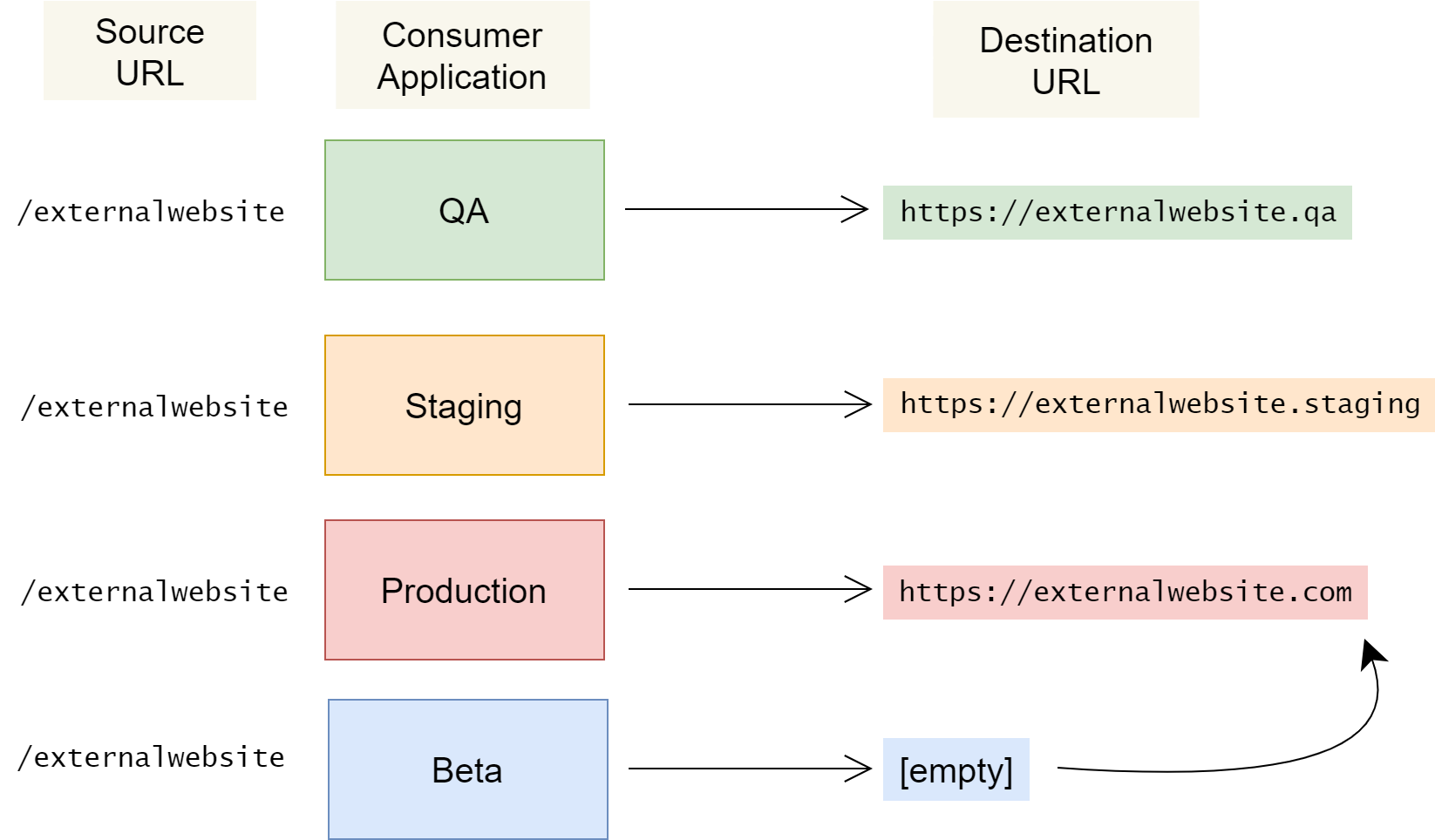3.3 Routing Manager Concept: Developer
Conceptual Overview
The Routing Manager allows you to centrally view and configure routings that can be used in Consumer Applications.
Routings
There are four routings that can be configured in the Routing Manager:
Page routings
Media Item routings
External Redirects
Consumer Routes
Page Routings
The routes associated with a Page:
The route a Page is accessible at
Redirects or rewrites to the Page from other URLs
Media Item Routings
The route associated with a Media Item:
The static URL from which a Media Item can be directly accessed
The static URL of a Media Item is still valid even if the Media Item is replaced.
External Redirects
An External Redirect is a redirect from within your application to outside of it. It uses the same destination URL in all Consumer Applications.
Consumer Routes
A Consumer Route, like an External Redirect, is a redirect from within your application to outside of it, but it can additionally be configured with a different destination URL for each Consumer Application.
If a destination URL is not set for a specific Consumer Application then the destination URL of the Consumer Application marked as the ‘production’ environment is used by default.
Routing Types
There are three types of routing that can be configured:
HTTP Temporary redirect
HTTP Permanent redirect
HTTP Rewrite
Using Routing Types
The following table shows which routing types can be used for each routing in the Routing Manager:
Routing | Permanent Redirect | Temporary Redirect | Rewrite |
|---|---|---|---|
Page routing | Yes | Yes | Yes |
Media Item routing | No | No | Yes |
External Redirect | Yes | Yes | No |
Consumer Route | Yes | Yes | No |
Routing in Consumer Applications
There are two approaches to routing in Consumer Applications:
Use the SDK’s built-in Routing Service. This handles all routing automatically. It assumes that all routing is defined in the CMS in the Routing Manager.
Use the SDK APIs. This is more useful if custom behaviour is required. The SDK contains APIs that allow access to all routing information released through the CMS. That information can be used however it is needed by the Consumer Application.
Note that choosing to use the SDK APIs means the Consumer Application must implement support for routing, static media item URLs, and for the production-only page attribute – the information for these are stored in the JSON manifests available from the SDK APIs.
User Journeys
Glossary
See the Glossary for more information.




